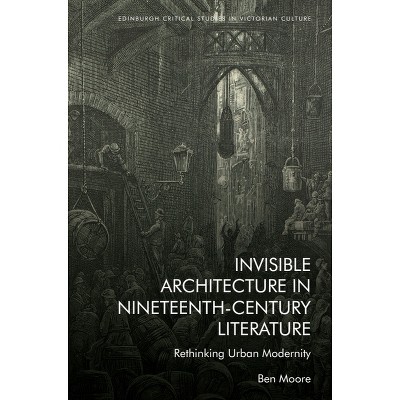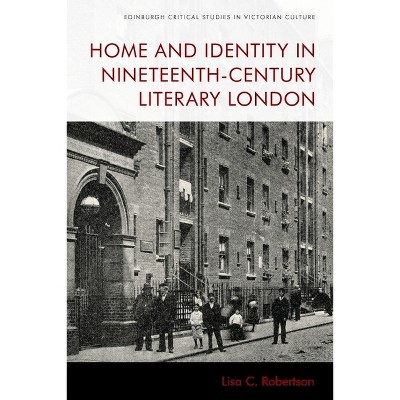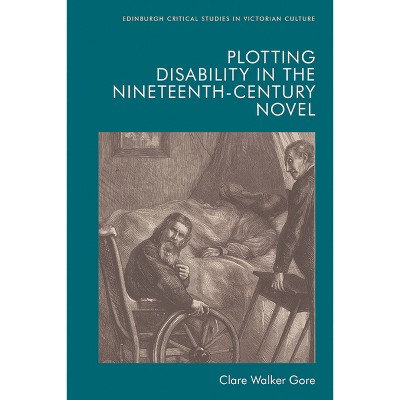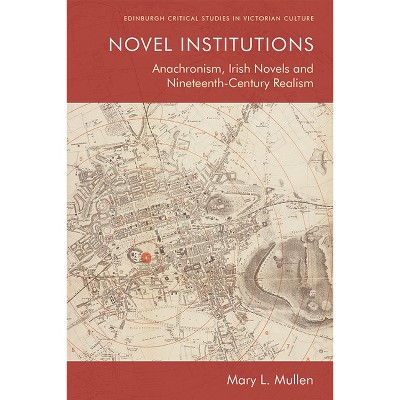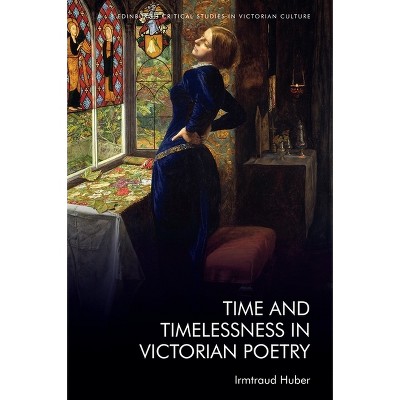Cultural Encounters with the Arabian Nights in Nineteenth-Century Britain - (Edinburgh Critical Studies in Victorian Culture) by Melissa Dickson

About this item
Highlights
- An overview of the cultural transmission of the Arabian Nights within nineteenth-century Britain An overview of the cultural transmission of the Arabian Nights within nineteenth-century Britain Fresh readings of canonical texts such as Charlotte Brontë's Jane Eyre, Charles Dickens's Hard Times, and Lewis Carroll's Alice in WonderlandDiverse primary sources analysing the presence of the Arabian Nights in distinct areas of cultural production: constructions of childhood, archaeological and geological science, theatrical display, and exhibitionsAladdin, Sinbad, Ali Baba and the Forty Thieves, Scheherazade winding out her intricate tales to win her nightly stay of execution: the stories of the Arabian Nights are a familiar and much-loved part of the English literary inheritance.
- About the Author: Dr Melissa Dickson is an ECR-funded researcher at St Anne's College Oxford.
- 232 Pages
- Literary Criticism, Children's & Young Adult Literature
- Series Name: Edinburgh Critical Studies in Victorian Culture
Description
About the Book
Dickson identifies the nineteenth century as the beginning of the large-scale absorption of the Arabian Nights into British literature and culture.
Book Synopsis
An overview of the cultural transmission of the Arabian Nights within nineteenth-century Britain
An overview of the cultural transmission of the Arabian Nights within nineteenth-century Britain Fresh readings of canonical texts such as Charlotte Brontë's Jane Eyre, Charles Dickens's Hard Times, and Lewis Carroll's Alice in WonderlandDiverse primary sources analysing the presence of the Arabian Nights in distinct areas of cultural production: constructions of childhood, archaeological and geological science, theatrical display, and exhibitions
Aladdin, Sinbad, Ali Baba and the Forty Thieves, Scheherazade winding out her intricate tales to win her nightly stay of execution: the stories of the Arabian Nights are a familiar and much-loved part of the English literary inheritance. But how did these tales become so much a part of the British cultural landscape?
Dickson identifies the nineteenth century as the beginning of the large-scale absorption of the Arabian Nights into British literature and culture. She explores how this period used the stories as a means of articulating its own experiences of a rapidly changing environment. She also argues for a view of these tales not as a depiction of otherness, but as a site of recognition and imaginative exchange between East and West, in a period when such common ground was rarely found
From the Back Cover
'This wonderful book shows how firmly the Arabian Nights was embedded in the British cultural psyche during the nineteenth century. From childhood reading through to stage performances and the narratives of archaeology and industrial modernity, this astute study tracks the ways in which the Arabian Nights wove its own forms of entrancement. Dickson's subtle text calls for a recalibration of our understandings of 'Orientalism' in the nineteenth century.' Sally Shuttleworth, University of Oxford An overview of the cultural transmission of the Arabian Nights within nineteenth-century Britain Aladdin, Sinbad, Ali Baba and the Forty Thieves, Scheherazade winding out her intricate tales to win her nightly stay of execution: the stories of the Arabian Nights are a familiar and much-loved part of the English literary inheritance. But how did these tales become so much a part of the British cultural landscape? Dickson identifies the nineteenth century as the beginning of the large-scale absorption of the Arabian Nights into British literature and culture. She explores how this period used the stories as a means of articulating its own experiences of a rapidly changing environment. She also argues for a view of these tales not as a depiction of otherness, but as a site of recognition and imaginative exchange between East and West, in a period when such common ground was rarely found Melissa Dickson is Lecturer in Victorian Literature at the University of Birmingham. Cover image: Cover design: [EUP logo] edinburghuniversitypress.com ISBN 978-1-4744-4364-7 BarcodeReview Quotes
This wonderful book shows how firmly the Arabian Nights was embedded in the British cultural psyche during the nineteenth century. From childhood reading through to stage performances and the narratives of archaeology and industrial modernity, this astute study tracks the ways in which the Arabian Nights wove its own forms of entrancement. Dickson's subtle text calls for a recalibration of our understandings of 'Orientalism' in the nineteenth century.-- "Sally Shuttleworth, University of Oxford"
About the Author
Dr Melissa Dickson is an ECR-funded researcher at St Anne's College Oxford. Her publications include Anxious Times: Medicine and Modernity in Nineteenth-Century Britain, co-authored with Ameila Bonea, Sally Shuttleworth and Jennifer Wallis (University of Pittsburgh Press, 2019), 'Jane Eyre's 'Arabian Tales' Reading and Remembering the Arabian Nights', Journal of Victorian Culture, 18:2 (2013) and 'Charles Wheatstone's Enchanted Lyre and the Spectacle of Sound' in Sound Knowledge: Music and Science in London, 1789-1851, ed. by Ellen Lockhart and James Q. Davies (University of Chicago Press, 2017).






